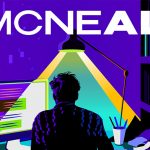The Legacy of Christopher Alexander
All the city news you can use.

Christopher Alexander. Photo by Michaelmehaffy, (CC BY-SA 4.0), via Wikimedia Commons
Every day at The Overhead Wire we sort through over 1,500 news items about cities and share the best ones with our email list. At the end of the week, we take some of the most popular stories and share them with Urban Milwaukee readers. They are national (or international) links, sometimes entertaining and sometimes absurd, but hopefully useful.
Preparing transit for modern work: Before the pandemic, just 5% of all worked hours were from home. After the pandemic, that number is expected to increase to 28%, an abrupt and remarkable societal shift. This is likely to have a huge impact on urban transportation as transit systems in many cities are organized primarily around work trips. Now, transit agencies have an opportunity to re-organize to support a new routine. (Nick Caros | Eno Center for Transportation)
Tire chemicals are killing fish: Researchers following up on a study that showed salmon were impacted by a tire chemical found in runoff have also found other fish such as trout are impacted by the same chemical in streams near roads. The chemical, which has been used in tires since the 1950s, acts to keep fish from processing oxygen when they breathe. Just a small amount in an urban stream is enough to suffocate and kill trout. (Bob Weber | Toronto Star)
Why Christopher Alexander still matters: Urban design pioneer Christopher Alexander passed away last week at the age of 85. His books including his best known work “A Pattern Language” are still must reads for architecture students and computer coders around the world. He even inspired the invention of Wikipedia. But even though he has passed what he taught us about design is still important, and we must figure out a way to sustain the environment around us. (Michael Mehaffy | Planetizen)
A lack of transit and housing coordination: The importance of connecting affordable housing and transportation is well known but having them connected in practice is another matter. New research from the Transit Cooperative Research Program discusses the challenges residents face in education, employment, and health care when transit is not as accessible as it should be. The work also shares solutions some agencies have been using to bridge the gap. (Mariia Zimmerman | MZ Strategies)
Quote of the week:
When asked to estimate their annual state gas tax expenditure, only one in five participants came within 10% of the calculated cost. 55% of respondents underestimated their gas taxes by more than 10%. The other 24% overestimated, sometimes by huge margins… People often couldn’t guess how much they paid in state gas taxes, but 52% of respondents still thought it was too high.
–Catie Gould in Sightline discussing how Washington State voters have no idea how much gas taxes are.
This week on the podcast, Adie Tomer from Brookings talks about how transit-oriented development and active transportation play into climate strategies.
Want more links to read? Visit The Overhead Wire and signup.
Urban Reads
-
Congestion Pricing Cuts Air Pollution in New York City
 Dec 14th, 2025 by Jeff Wood
Dec 14th, 2025 by Jeff Wood
-
We Think We Love to Drive. But Do We Really?
 Dec 7th, 2025 by Jeff Wood
Dec 7th, 2025 by Jeff Wood
-
Can Scott Wiener Tackle America’s Housing Crisis?
 Nov 23rd, 2025 by Jeff Wood
Nov 23rd, 2025 by Jeff Wood





















